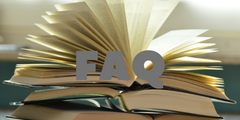Texas Senate Unveils its Priority School Voucher Bill
Receive exclusive stories like these directly in your email inbox by signing up for Newsletter.
On Monday, the Texas Senate introduced its primary bill for establishing an education savings account program, which is a top priority for Governor Greg Abbott during this special session.
Authored by Senator Brandon Creighton, R-Conroe, Senate Bill 1 would grant families access to $8,000 of taxpayer money. This money can be used to cover private school tuition and various educational expenses, including uniforms, textbooks, tutoring, and transportation.
In a statement, Creighton expressed his belief that empowering parents with school choice will foster competition, innovation, and ensure that all students in Texas have the opportunity to pursue an educational path that meets their individual needs.
The education savings accounts will be established and managed by the state comptroller’s office. The bill proposes allocating $500 million from the general revenue fund over the next two years to finance the program. The comptroller’s office will also be responsible for preventing fraud and misuse of funds, which is a significant concern for many lawmakers. In addition, they will approve an organization to process applications and endorse vendors and participating private schools.
Senator Creighton assures that the program will not divert funds away from public schools since the funding stems from general revenue, not the Foundation School Program, which is the primary source of funding for K-12 public schools in the state.
The bill does not require students attending private schools to take state-administered academic achievement exams. Critics of school vouchers in the Texas Legislature argue that an education savings account proposal should include this requirement to be considered.
If the bill becomes law, almost any student who was enrolled in a public school last year would be eligible to apply for the program, as well as incoming Pre-K and kindergarten students.
To prioritize entry into the program in cases where there are more applicants than available funds, the bill includes a formula. Forty percent of the available spots would go to students receiving free or reduced lunch, 30% to families earning between 185% and 500% of the federal poverty line, 20% to students with disabilities, and 10% to those who attended public, private, or homeschool in the previous academic year.
Senator Creighton filed SB 1 shortly after announcing Senate Bill 2, a $5.2 billion school funding bill that primarily allocates funds for teacher raises. It also includes a small increase in funding to assist schools in covering their growing expenses.
The fate of the funding bill remains uncertain. The only education-related item in Governor Abbott’s agenda for the special session was education savings accounts, a school voucher program that allows families to utilize state funds for private education. According to the state constitution, lawmakers can only pass bills related to the governor’s agenda during special sessions. However, the governor retains the authority to modify the agenda at any time.
Senator Creighton argues that SB 1 and SB 2 complement each other, demonstrating that lawmakers can offer more educational options to Texas families while also increasing funding for public schools. During the regular session, two proposals to create an education savings account program and provide teachers with pay bonuses, both authored by Creighton, failed in the House due to disagreements concerning vouchers and methods for increasing teacher salaries.
During the last days of the regular session, Creighton attached his education savings account proposal, similar to the one announced on Monday, to House Bill 100, a school finance bill. However, the bill ultimately failed as House members once again opposed school vouchers. Consequently, public schools did not receive any new funding for teacher raises or other rising expenses.
As the third special session of the year commenced on Monday, the future of an education savings account program remains uncertain due to internal conflicts within the Texas Republican Party. Lt. Governor Dan Patrick called on House Speaker Dade Phelan to resign after Phelan demanded that Patrick return $3 million to a major supporter, the Defend Texas Liberty PAC. This demand arose after The Texas Tribune reported that the PAC’s leader had met with a white supremacist and anti-Semitic activist. Patrick accused Phelan of politicizing the recent Hamas attack on Israel.
Meanwhile, Texas House Democrats reiterated their opposition to any form of school voucher program.
Representative Trey Martinez Fischer, Chair of the House Democratic Caucus, stated that his group is firmly against vouchers and any associated deals.
Representative James Talarico of Austin declared, "A voucher scam is a poison pill that will inevitably drain more resources from our public schools than it provides."
SB2 is the primary carrot that Abbott is using to attract anti-voucher Republicans and a small number of persuadable Democrats to vote in favor of legislation promoting school choice, stated Jones. In return, Abbott promises to prioritize public school funding during the special session, allowing for a swift passage of SB2 or a similar bill in both the Senate and the House.
This article was originally published in The Texas Tribune, an unbiased newsroom that informs and engages Texans about state politics and policy. For more information, visit texastribune.org.
Please note that Rice University has provided financial support to The Texas Tribune, a nonpartisan news organization. This support, along with contributions from members, foundations, and corporate sponsors, helps fund their journalism. Financial supporters do not have any influence over the Tribune’s reporting. A complete list of financial supporters can be found here.
Subscribe to Newsletter to receive similar stories directly to your email inbox.


